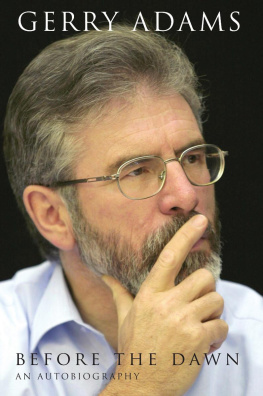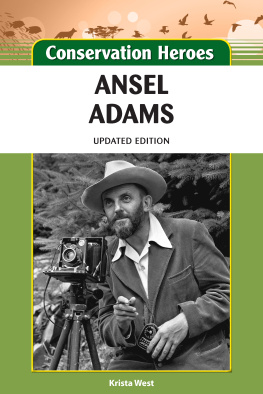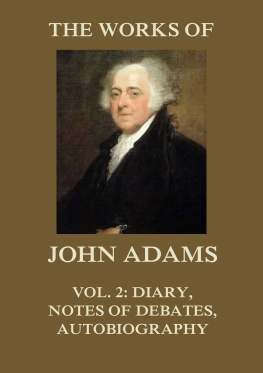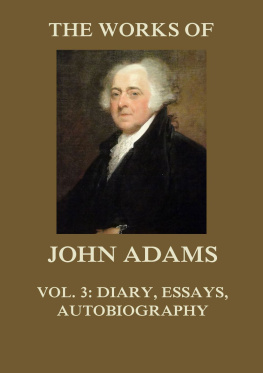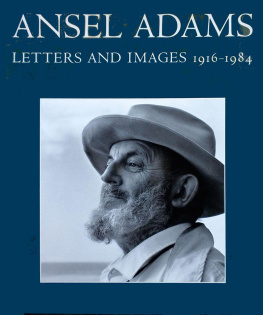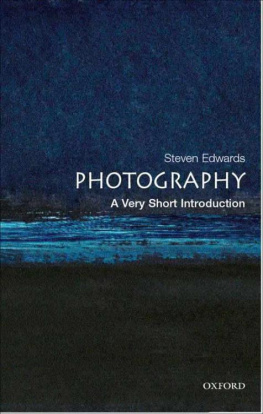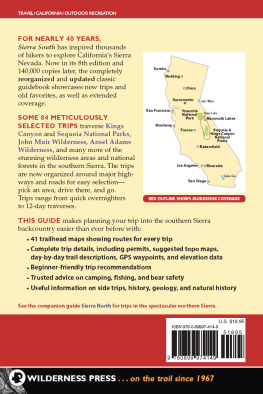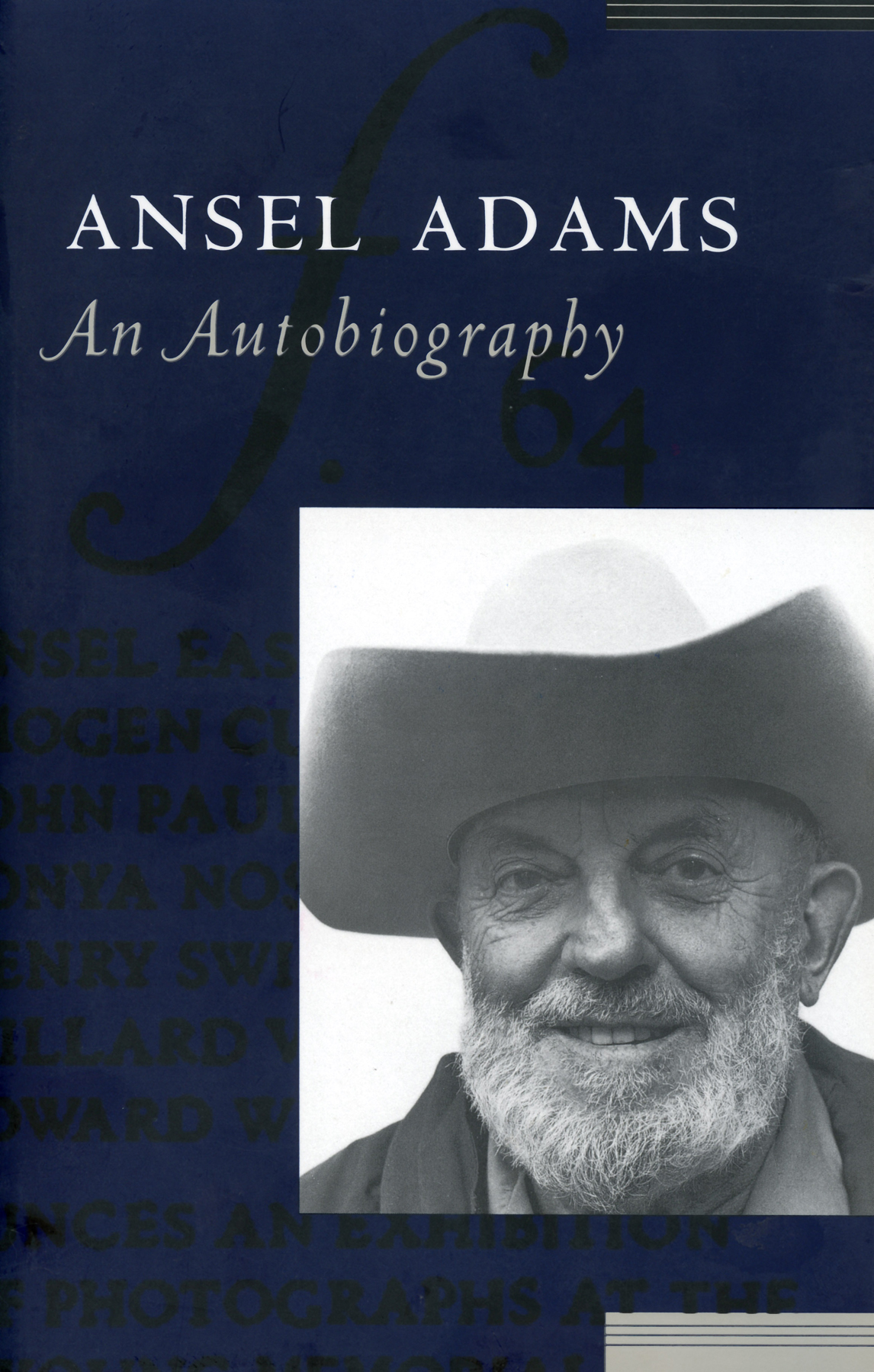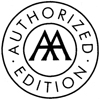Thank you for buying this ebook, published by HachetteDigital.
To receive special offers, bonus content, and news about ourlatest ebooks and apps, sign up for our newsletters.
In 1976, Ansel Adams selected Little, Brown and Company as the sole authorized publisher of his books, calendars, and posters. At the same time, he established The Ansel Adams Publishing Rights Trust in order to ensure the continuity and quality of his legacyboth artistic and environmental.
As Ansel Adams himself wrote, Perhaps the most important characteristic of my work is what may be called print quality. It is very important that the reproductions be as good as you can possibly get them. The authorized books, calendars, and posters published by Little, Brown have been rigorously supervised by the Trust to make certain that Adams exacting standards of quality are maintained.
Only such works published by Little, Brown and Company can be considered authentic representations of the genius of Ansel Adams.
Copyright 1985, 1996 by The Ansel Adams Publishing Rights Trust
Hachette Book Group supports the right to free expression and the value of copyright. The purpose of copyright is to encourage writers and artists to produce the creative works that enrich our culture.
The scanning, uploading, and distribution of this book without permission is a theft of the authors intellectual property. If you would like permission to use material from the book (other than for review purposes), please contact permissions@hbgusa.com. Thank you for your support of the authors rights.
Little, Brown and Company
Hachette Book Group
1290 Avenue of the Americas, New York, NY 10104
littlebrown.com
twitter.com/littlebrown
facebook.com/littlebrownandcompany
First ebook edition: February 2017
Little, Brown and Company is a division of Hachette Book Group, Inc. The Little, Brown name and logo are trademarks of Hachette Book Group, Inc.
The publisher is not responsible for websites (or their content) that are not owned by the publisher.
This new edition reproduces the entire text of the original book, as well as a small selection of the photographs.
Acknowledgments of permission to quote from copyrighted material appear at the back of the book.
ISBN 978-0-316-43701-1
E3-20161220-JV-NF
If one feels inclined to embark on a journey into memory, after eighty-two years the experience promises to be kaleidoscopic and, perhaps, willfully colored. I have attempted to remove the filter from my memory lens, allowing more than my dreams to reach the page. Many things are clarified only by the passage of time. I distrust any lifelong memory of facts, but not the lifelong glow of experience that depends upon another form of reality. Possibly it would be too shattering to recall everything exactly, not because it was necessarily bad, but because it could reveal opportunities missed and errors made. Such might be best unremembered.
I think I have something to give my readers of the flavor of a good part of the twentieth century as seen through a life of creative experience. The worlds of nature and of people have been closely involved; a fact not too clear in the general opinion as I have chosen to stress the natural scene above other directions in my photography.
I am not going to retrace my life from past to present on a one-lane highway. I intend to recall varieties of experience, stretching tentacles of memory to the earliest sources in such sequences as seem logical, but without restrictions of time or place.
It is sometimes a desolate moment when one sees old photographs and realizes that all the humanity represented is dead and forgotten. Painting or sculpture of deceased persons, famous or not, does not evoke the same response in me as do photographs; there is a reality in the camera remembrances that compels respectful consideration. Likewise, literary discussion of the departed holds a certain poignancy and euphoric assurance of their continuing presence among us. As I write I find that while I use words denoting past situations and long-dead persons, I continue to acknowledge their living reality and their relationship to my life and work. It is my responsibility to recall them as essential spokes in the great wheel of life and to relate them to the conclusions I have drawn about my life and work.
Some of my friends were of tremendous importance in their time, yet what they accomplished was not the stuff of history books. Nevertheless, they continue in the lives of those influenced by their generosity and spirit. I have also known characters, both historical and famous, who were personally and immensely inspiring: Alfred Stieglitz, Paul Strand, Edward Weston, Charles Sheeler, Dorothea Lange, Minor White, Imogen Cunningham, Beaumont and Nancy Newhall, Edwin H. Land, David Hunter McAlpin, Georgia OKeeffe, John Marin. Then the roster broadens; literally thousands of wonderful friends have accompanied me in life and many now await me in the secret eternity to come. I have enjoyed the long voyage and I thank all for their companionship and their affection.
I wish to express my deep appreciation:
To Mary Alinder, my dear friend and editor, whose devotion and love gave me the daily inspiration to continue writing this book, and whose editorial genius assembled it into a meaningful whole. She truly knows me better than I know myself
To cherished Virginia, my wife of more than half a century, who gave excellent commentary on the text from the vantage point of remembering better than anyone both the joys and sorrows of my life in the world and in my art
To James Alinder, who kindly read this tome as an historian, editor, photographer, and friend; his insights have served to clarify my chaos
To Chris Rainier, Phyllis Donohue, and Rod Dresser for their continued and valued assistance
And to my colleagues at Little, Brown: Janet Swan Bush, George Hall, John Maclaurin, Ray Roberts, and Arthur Thornhill, Jr., whom I have come to know over the past decade to represent the finest in publishing.
ANSEL ADAMS
Carmel, California
March 1984
I began working for Ansel Adams as his executive assistant in 1979. While I supervised his staff and his many projects, my prime responsibility was to assist Ansel as he wrote his autobiography. We began by taking long, daily walksme with tape recorder in handasking question upon question, jogging his memory, getting both of us excited about the possibilities that lay ahead with this book. During the five years we worked on this text, even during his increasingly frequent hospitalizations, we always continued in an established routine. We joked that the hospital was the one place I could get him to concentrate fully on the autobiography. Wherever we found ourselves, we worked well together, writing and rewriting the chapters of this book through seven drafts.
Ansel died peacefully on the evening of Easter Sunday, April 22, 1984. That day a concert by the great pianist Vladimir Ashkenazy, a close friend, was given in Ansel and Virginias home. Ansel had been hospitalized a couple of days before, but we thought until the last minute that he would be able to attend. Although he was not physically there, everyone in the audience felt that Ansel was listening with us as Ashkenazy performed his inspired interpretation of music by Schubert, Schumann, and Chopin. Following the concert, family and a few close friends came to the hospitals intensive care unit and were greeted by Ansels booming words of welcome, wide grin, and outstretched arms. Just hours later he quietly passed away. He had maintained his brilliance, vigor, humor, and purpose right to the end.


